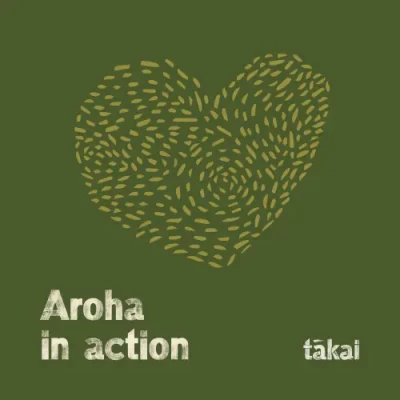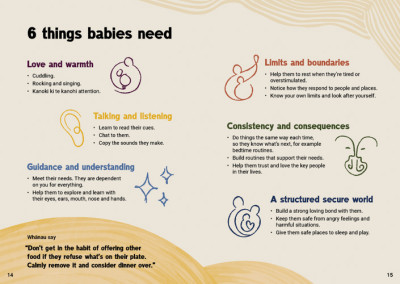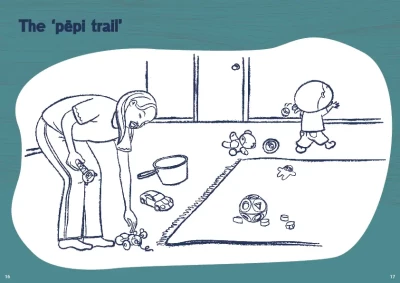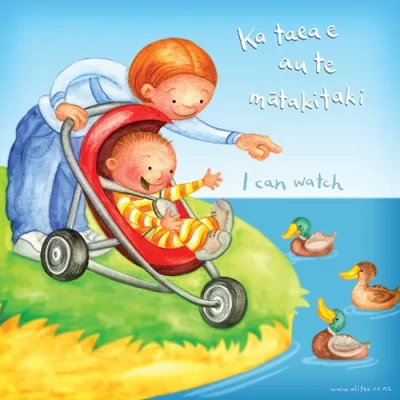
Discipline and role models
Discipline and role modelling are far better teaching tools than punishment.
Discipline and punishment – the difference
Sometimes the words ‘discipline’ and ‘punishment’ are used to mean the same thing. However, discipline is more about teaching and learning through guidance, while punishment focuses more on retribution or suffering for an offence.
Ask whānau:
- What are your thoughts about these two words? How would you describe them?
Discipline has been linked to the word ‘disciple’ – describing a student, a follower or a pupil. There is a definite link to teaching and learning.
Toddlers are inquisitive – that’s how they learn. They find out about the world and their place in it by exploring and experimenting. They climb, taste, poke, touch and ask a million questions to figure things out.
Parents help when they supervise their toddler’s exploration, making sure they're safe and that they have different things to discover and learn about.
When this discipline, guidance and teaching happens in a warm and nurturing way, children can grow into happy and capable adults. Ask:
- How do you discipline your toddler?
- What are they learning from you as their teacher?
- How might that help them in the future?
A child feels supported and secure when they receive appropriate discipline for their developmental age.
Using punishment
Punishment occurs when adults believe that children need a bit of suffering to learn life’s lessons. It is never an effective long-term teaching tool. Children may change their behaviour when they remember the pain or suffering, but this is more likely to be from fear than from understanding.
Punishment can also be more about relieving parental stress or frustration than guiding a toddler’s behaviour. Ask:
- What can you remember about your childhood in relation to discipline and punishment?
- What would you have done differently if you were the parent?
Role modelling
Role modelling is a key factor in how children learn.
Ask:
- What do you think about this quote — ‘Don’t worry that children never listen to you; worry that they are always watching you’? (from Robert Fulghum’s book All I really need to know, I learned in kindergarten)
- What is your toddler seeing when they are watching you?
This poem by Dorothy Law Nolte cleverly shows the power of role models.
If a child lives with criticism, he learns to condemn.
If a child lives with hostility, she learns to fight.
If a child lives with ridicule, he learns to be shy.
If a child lives with shame, she learns to feel guilty.
If a child lives with tolerance, he learns to be patient.
If a child lives with encouragement, she learns confidence.
If a child lives with praise, he learns to appreciate.
If a child lives with fairness, she learns justice.
If a child lives with security, he learns to have faith.
If a child lives with approval, she learns to like herself.
If a child lives with acceptance and friendship, he learns to find love in the world.
Helpful resources for whānau
-
Children see, children do
An ad campaign from Australia's National Association for Prevention of Child Abuse and Neglect showing that what children see, they do.
 pdf 5 MB
pdf 5 MB














